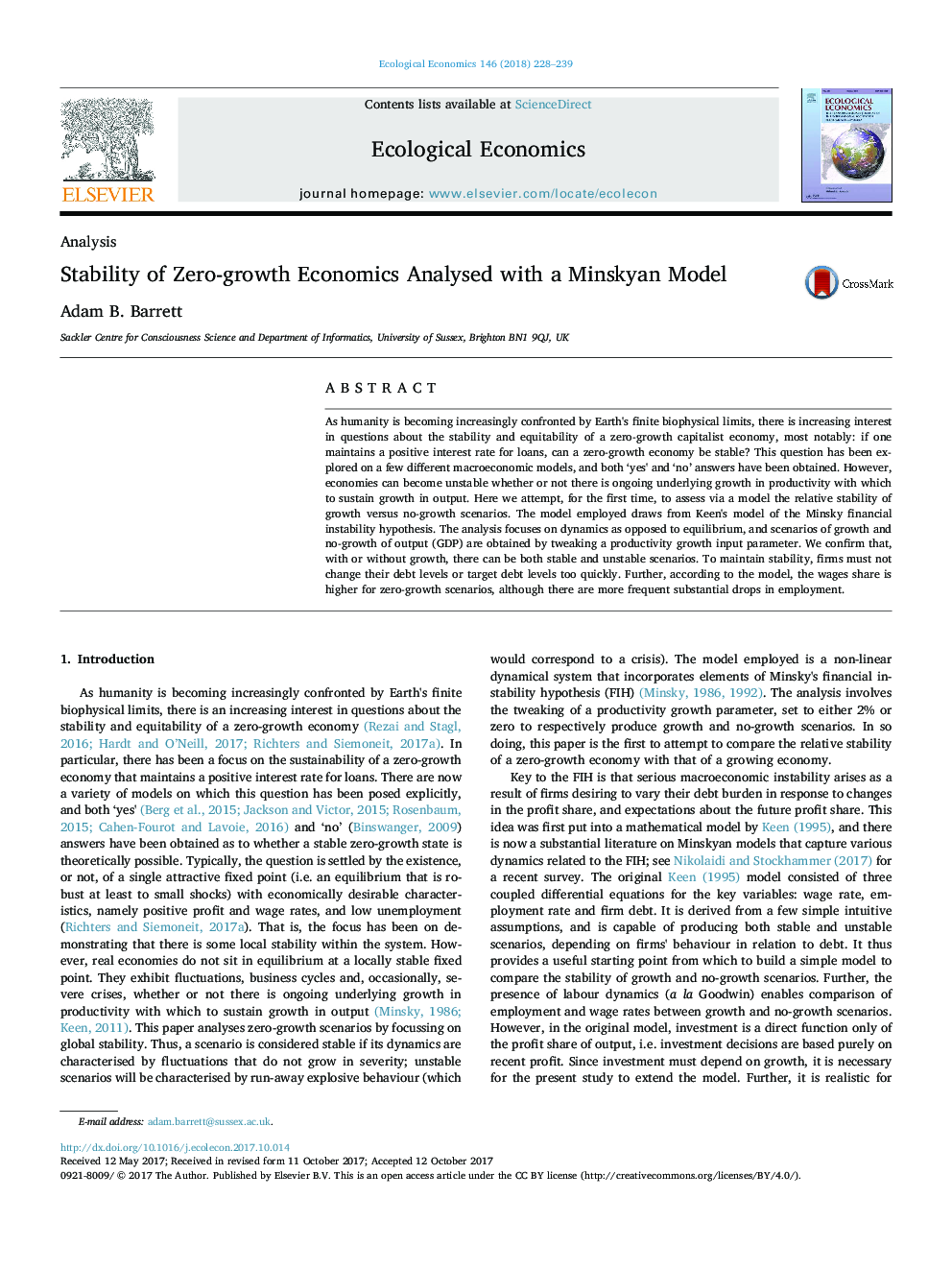| Article ID | Journal | Published Year | Pages | File Type |
|---|---|---|---|---|
| 7344550 | Ecological Economics | 2018 | 12 Pages |
Abstract
As humanity is becoming increasingly confronted by Earth's finite biophysical limits, there is increasing interest in questions about the stability and equitability of a zero-growth capitalist economy, most notably: if one maintains a positive interest rate for loans, can a zero-growth economy be stable? This question has been explored on a few different macroeconomic models, and both 'yes' and 'no' answers have been obtained. However, economies can become unstable whether or not there is ongoing underlying growth in productivity with which to sustain growth in output. Here we attempt, for the first time, to assess via a model the relative stability of growth versus no-growth scenarios. The model employed draws from Keen's model of the Minsky financial instability hypothesis. The analysis focuses on dynamics as opposed to equilibrium, and scenarios of growth and no-growth of output (GDP) are obtained by tweaking a productivity growth input parameter. We confirm that, with or without growth, there can be both stable and unstable scenarios. To maintain stability, firms must not change their debt levels or target debt levels too quickly. Further, according to the model, the wages share is higher for zero-growth scenarios, although there are more frequent substantial drops in employment.
Related Topics
Life Sciences
Agricultural and Biological Sciences
Ecology, Evolution, Behavior and Systematics
Authors
Adam B. Barrett,
